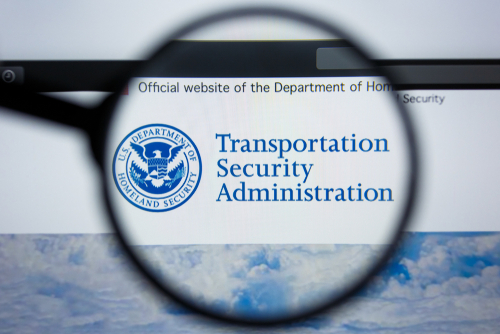
During a hearing with the House Committee on Appropriations Subcommittee on Homeland Security, Transportation Security Administration (TSA) this week, the latter’s administrator, David Pekoske, lent insight into the agency’s plans for its $10.4 billion allotment under a 2024 budget request.
Said funding was approved in the Fiscal Year 2023 Omnibus Appropriations Act. A big point of focus for that funding will be to bring employee compensation packages in line with those of other federal agencies, as well as the increased passenger travel volumes agents face. Efforts will be made to maintain wait times standards, expand computed tomography (CT) deployments at airport checkpoints and counteract cyber threats to surface and aviation transportation.
“A dedicated and well-trained workforce and the sound deployment of next generation technology are essential to enhanced security, checkpoint efficiency, and an improved passenger experience,” Pekoske said. “I am very grateful for the funding we received in the FY23 Omnibus Appropriations Act that places TSA employees on an equal pay footing with every other employee in the federal government. This action is critical to our long-term success, and without this necessary funding, there will be significant wait time increases for travelers.”
According to Pekoske, the TSA screened 736 million travelers last year alone or an average of more than 2 million passengers each day of the year. Of these, 99.4 percent waited less than 30 minutes at airport security checkpoints. However, passenger volumes are only expected to increase.
Pay package efforts will account for $1.4 billion of the incoming funds, including $251 million for a 5.2 percent pay raise among TSA employees. The largest chunk – $3.7 billion – will, however, go to improve customer experiences, including modernized airport checkpoints and deployment of the Credential Authentication Technologies to improve ID verification and screening and improve processing efficiency.
The remainder will include items such as $151 million to develop and implement enhanced cybersecurity measures and $111 million to transition access control of exit lanes to airport authorities and commercial airports rather than TSA employees. Similarly, a legislative proposal was offered to terminate TSA’s $1.6 billion deficit diversion.
“It includes a legislative proposal to terminate TSA’s deficit reduction contributions from Passenger Fee collections, which, if enacted, will provide an additional $1.6B to directly offset TSA’s appropriated funding and return the funds to use for their intended purpose,” Pekoske said.
Those funds would instead go to support critical aviation security requirements.




